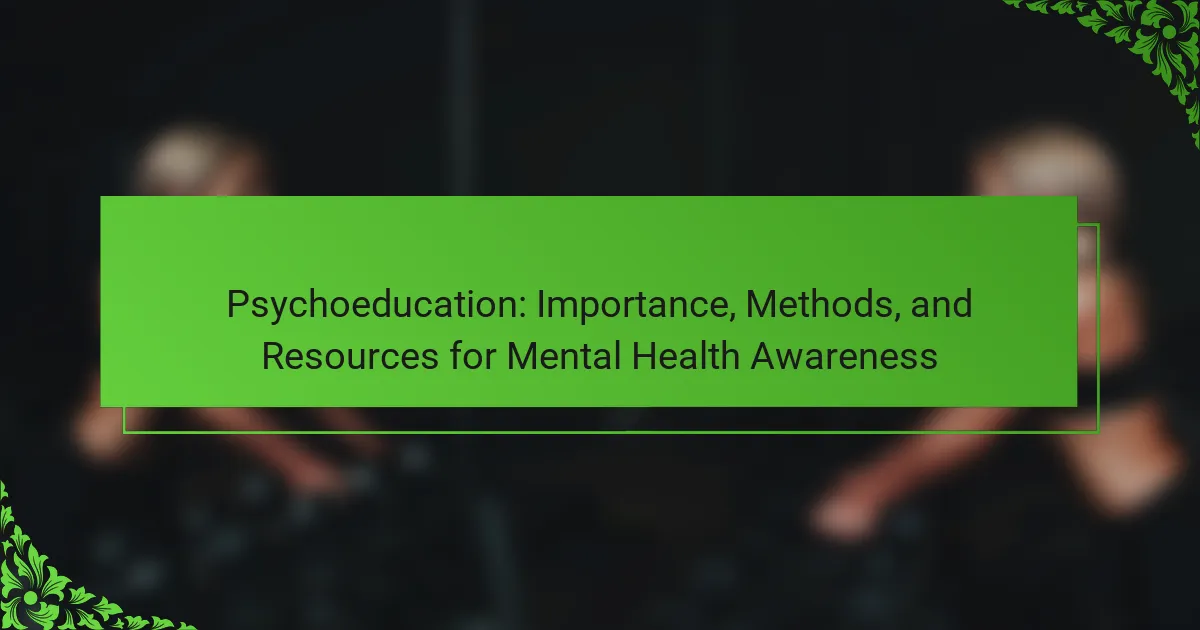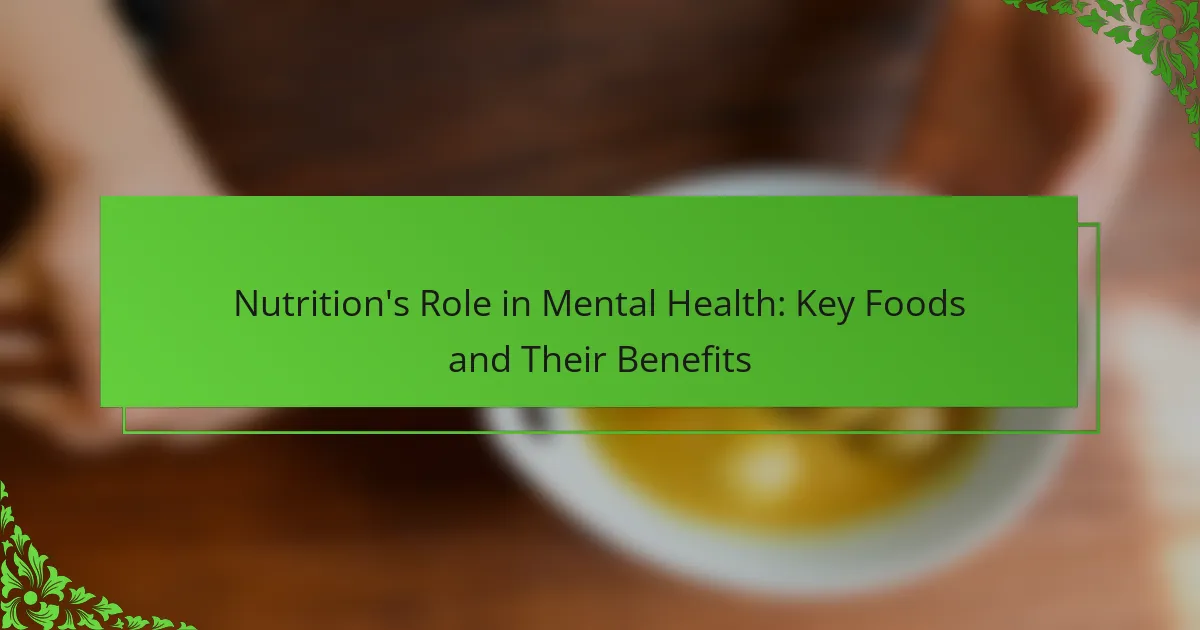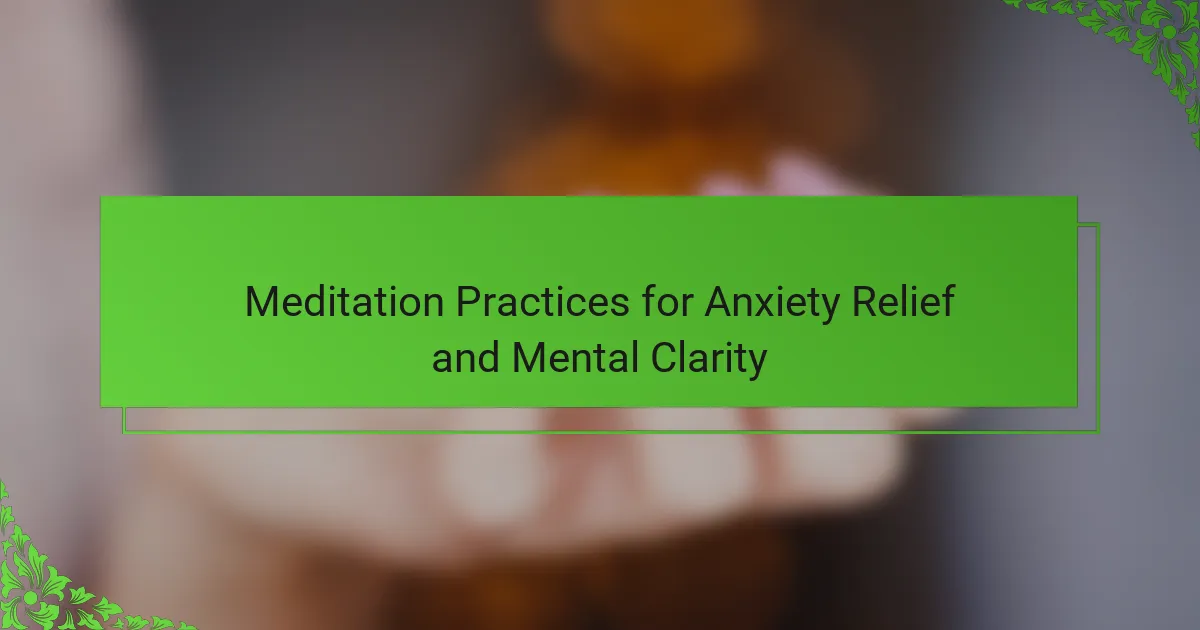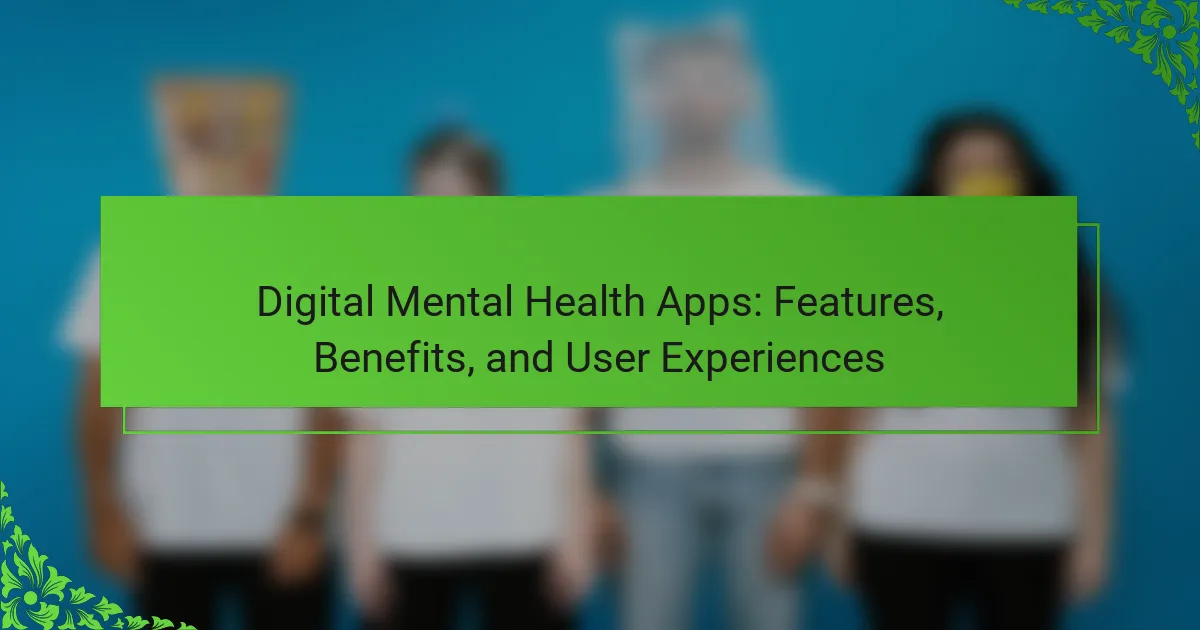Psychoeducation is essential for enhancing mental health awareness and reducing stigma. This article explores the importance of psychoeducation, effective delivery methods like workshops and online resources, and the role of cultural differences in shaping practices. Additionally, it highlights available resources and common pitfalls to avoid for successful implementation.
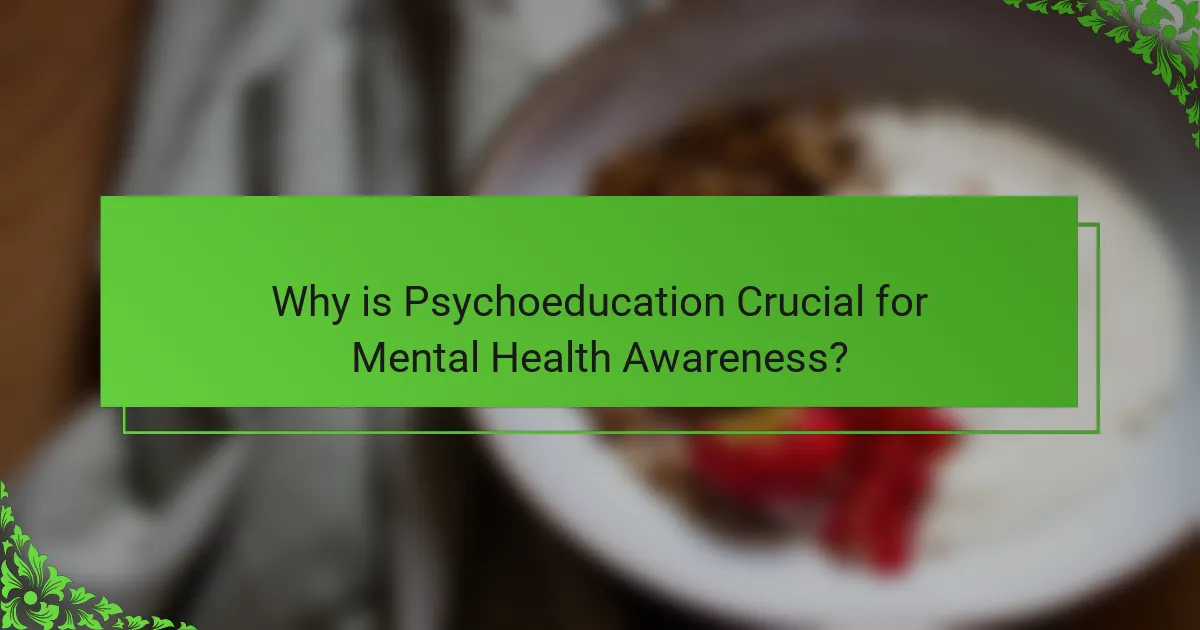
Why is Psychoeducation Crucial for Mental Health Awareness?
Psychoeducation is crucial for mental health awareness as it empowers individuals with knowledge about mental health conditions and coping strategies. By understanding symptoms, treatment options, and the importance of seeking help, individuals can reduce stigma and improve overall mental well-being.
Effective psychoeducation methods include workshops, support groups, and online resources. These platforms facilitate learning and sharing experiences, fostering a supportive community. Research shows that psychoeducation can lead to reduced symptoms and improved quality of life for those affected by mental health issues.
Access to psychoeducation resources is essential for broadening awareness. Community organizations, mental health professionals, and educational institutions play a vital role in providing information and support. Increased awareness can lead to early intervention and better outcomes for individuals facing mental health challenges.
What Benefits Does Psychoeducation Offer to Individuals?
Psychoeducation offers numerous benefits, including enhanced understanding of mental health, improved coping strategies, and increased self-efficacy. It empowers individuals by providing knowledge about their conditions, fostering communication with healthcare providers, and reducing stigma. Additionally, psychoeducation supports emotional regulation and promotes healthier relationships through increased awareness of psychological processes.
How Does Psychoeducation Impact Communities?
Psychoeducation significantly enhances community mental health by increasing awareness and reducing stigma. It empowers individuals with knowledge about mental health issues, fostering a supportive environment. Programs often include workshops, resources, and support groups that promote understanding and resilience. As a result, communities experience improved mental health outcomes and stronger social connections.
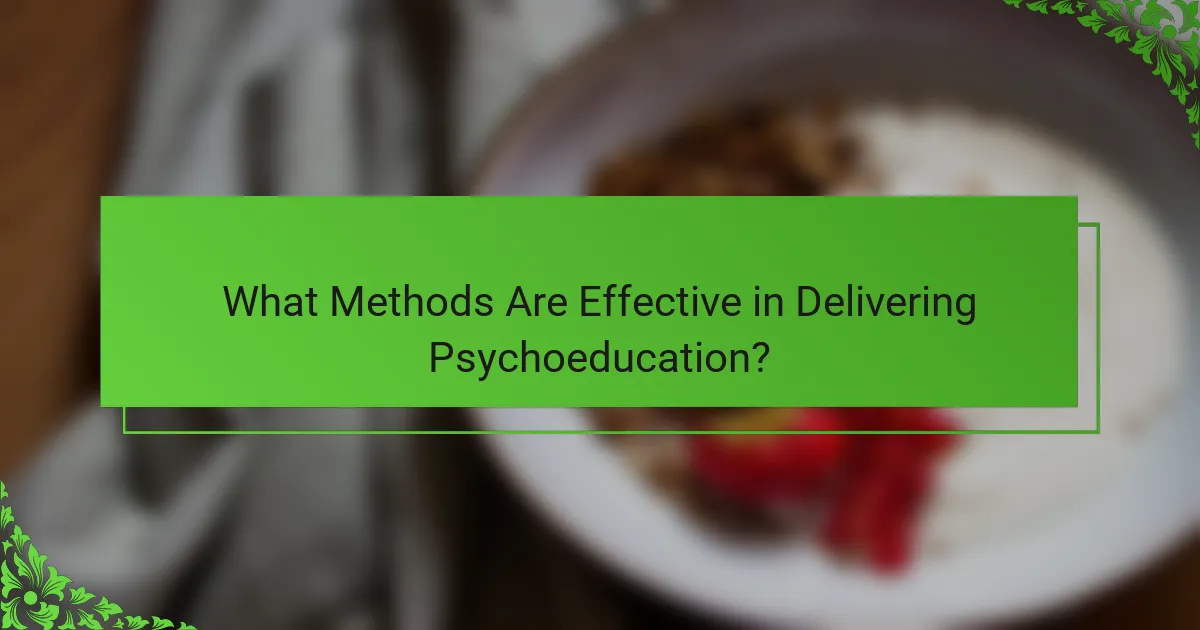
What Methods Are Effective in Delivering Psychoeducation?
Effective methods for delivering psychoeducation include workshops, individual counseling, group sessions, and online resources. Each method promotes mental health awareness through structured information sharing. Workshops facilitate interactive learning, while individual counseling offers personalized support. Group sessions foster community engagement, and online resources provide accessible information. These diverse approaches cater to various learning styles and preferences, enhancing overall mental health education.
Which Formats of Psychoeducation Are Most Engaging?
Interactive formats of psychoeducation, such as workshops and group discussions, are most engaging. These methods foster participation and enhance retention through active involvement.
Online platforms offering webinars and virtual support groups also provide flexible engagement options. Visual aids, like infographics and videos, can further enhance understanding and interest.
In addition, gamification techniques, such as quizzes and interactive scenarios, make learning about mental health more appealing. These formats cater to diverse learning preferences, maximizing impact.
How Can Technology Enhance Psychoeducational Approaches?
Technology enhances psychoeducational approaches by providing innovative tools and resources that improve mental health awareness. Digital platforms facilitate access to information and support, enabling individuals to learn about mental health at their own pace. Interactive applications and online courses offer personalized learning experiences, catering to diverse needs and preferences. Virtual reality and gamification techniques can engage users, making learning more effective and enjoyable. Additionally, data analytics can track progress and outcomes, allowing for tailored interventions that maximize impact.
What Role Do Mental Health Professionals Play in Psychoeducation?
Mental health professionals play a crucial role in psychoeducation by providing knowledge and skills to individuals and communities. They facilitate understanding of mental health issues, promote coping strategies, and enhance awareness of available resources. This education helps reduce stigma and empowers individuals to seek help. Mental health professionals utilize various methods, including workshops, group sessions, and individual counseling, to deliver psychoeducational content effectively. They tailor their approaches to meet the unique needs of diverse populations, ensuring that information is accessible and relevant.
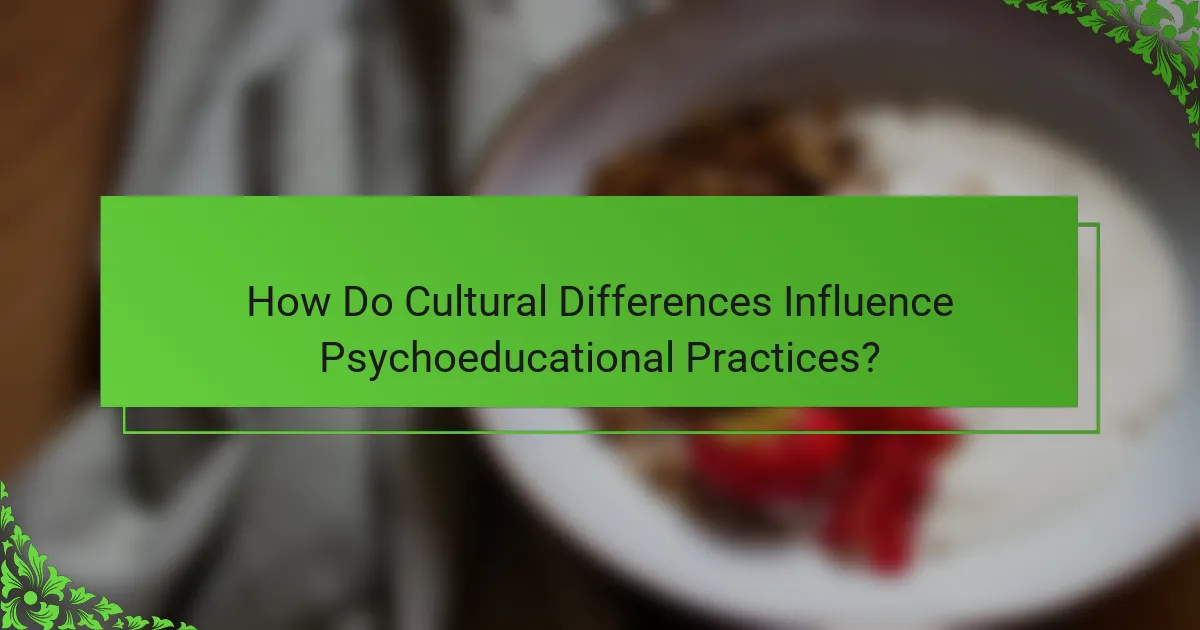
How Do Cultural Differences Influence Psychoeducational Practices?
Cultural differences significantly influence psychoeducational practices by shaping beliefs, communication styles, and learning preferences. Understanding these variations is crucial for effective mental health awareness.
For instance, collectivist cultures may prioritize group harmony, leading to communal approaches in psychoeducation. In contrast, individualistic cultures often emphasize personal responsibility and self-advocacy.
Additionally, language barriers can affect the delivery of psychoeducational resources. Culturally tailored materials enhance engagement and comprehension, ensuring that diverse populations receive appropriate support.
Ultimately, recognizing and respecting cultural differences improves the effectiveness of psychoeducational methods, fostering better mental health outcomes across various communities.
What Unique Challenges Do Different Regions Face in Psychoeducation?
Different regions face unique challenges in psychoeducation due to cultural, economic, and infrastructural differences. For instance, rural areas often lack access to mental health resources, impacting education efforts. Urban regions may experience stigma and misinformation, hindering engagement. Additionally, socioeconomic factors can limit funding for psychoeducational programs. Regions with diverse populations may struggle to tailor content effectively, leading to gaps in understanding. Addressing these challenges requires localized strategies that consider specific community needs and resources.
How Can Psychoeducation Be Tailored to Diverse Populations?
Psychoeducation can be tailored to diverse populations by considering cultural, linguistic, and socioeconomic factors. Customizing content ensures relevance and effectiveness in addressing specific community needs.
1. Assess cultural beliefs: Understand how different cultures perceive mental health to create relatable materials.
2. Use appropriate language: Provide resources in multiple languages and at varying literacy levels.
3. Adapt methods: Incorporate community practices and values into psychoeducational approaches.
4. Engage local leaders: Collaborate with trusted figures to enhance credibility and acceptance of psychoeducational initiatives.
5. Evaluate outcomes: Regularly assess the effectiveness of tailored programs and adjust based on feedback.
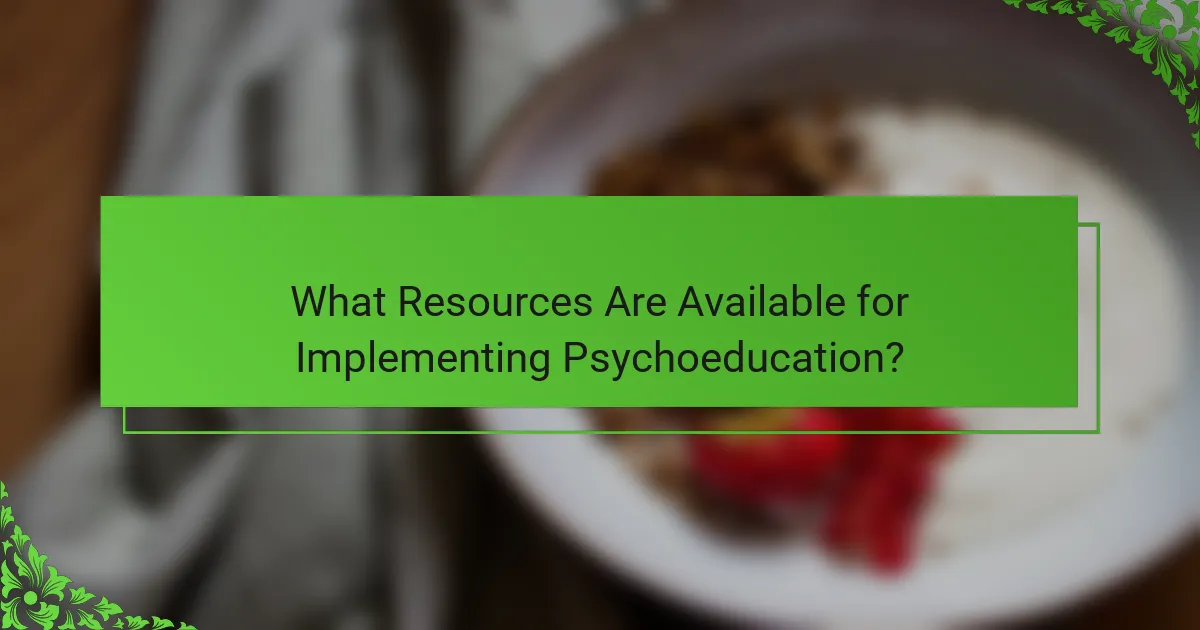
What Resources Are Available for Implementing Psychoeducation?
Various resources exist for implementing psychoeducation, including workshops, online courses, and informational materials. These resources aim to enhance mental health awareness and provide practical strategies for individuals and communities. Local mental health organizations often offer tailored programs and support groups. Additionally, digital platforms provide accessible content for broader reach. Research indicates that engaging in psychoeducational activities can significantly improve mental health outcomes.
Which Organizations Specialize in Psychoeducation Resources?
Numerous organizations specialize in psychoeducation resources to enhance mental health awareness. Notable examples include the National Alliance on Mental Illness, Mental Health America, and the American Psychological Association. These organizations provide various tools, workshops, and educational materials aimed at improving understanding of mental health issues. They also offer unique programs tailored for different demographics, such as youth, veterans, and families.
What Online Platforms Offer Psychoeducational Materials?
Several online platforms provide psychoeducational materials, enhancing mental health awareness. Notable resources include:
1. Mental Health America: Offers articles, webinars, and toolkits for various mental health topics.
2. National Alliance on Mental Illness (NAMI): Provides educational resources, support groups, and advocacy information.
3. PsychCentral: Features a wide range of articles and forums on mental health issues.
4. Coursera: Hosts online courses from universities on psychology and mental health.
5. YouTube: Contains numerous channels dedicated to mental health education and awareness.
6. TED Talks: Offers insightful presentations on mental health from experts and advocates.
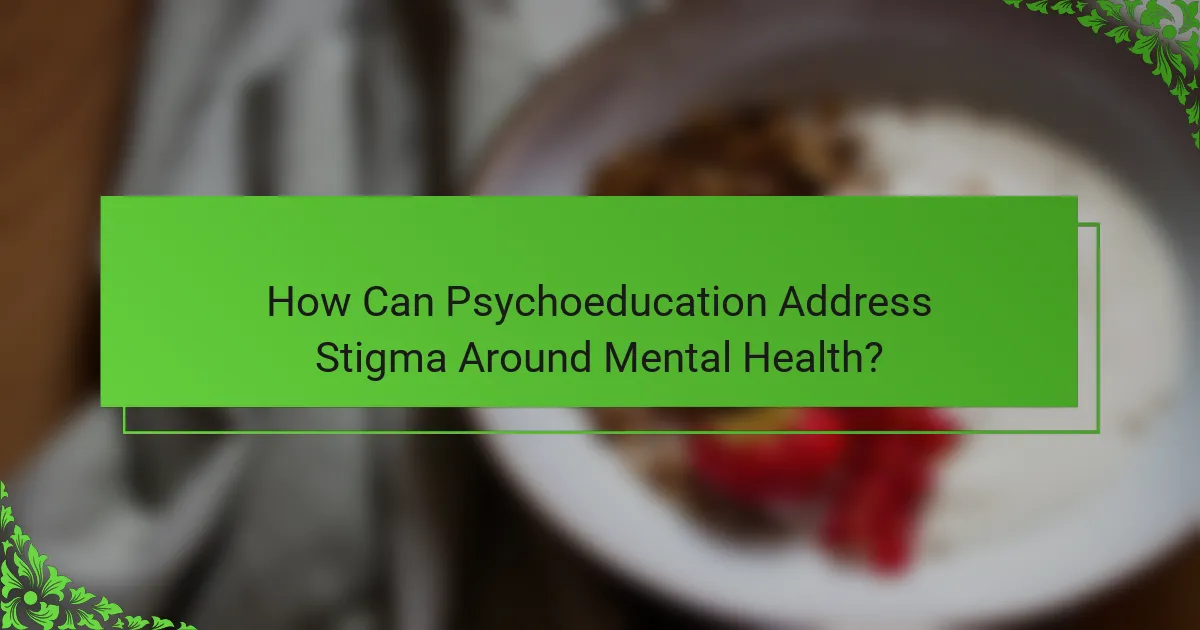
How Can Psychoeducation Address Stigma Around Mental Health?
Psychoeducation can effectively address stigma around mental health by providing accurate information and fostering understanding. It promotes awareness of mental health conditions, dispels myths, and encourages open discussions. Educational programs can reduce misconceptions, leading to increased empathy and support for individuals facing mental health challenges. As a result, communities become more inclusive, creating safer environments for those affected.
What Strategies Are Effective in Reducing Mental Health Stigma?
Effective strategies for reducing mental health stigma include psychoeducation, community engagement, and personal storytelling. Psychoeducation raises awareness by providing accurate information about mental health conditions, their prevalence, and treatment options. Methods such as workshops, seminars, and online resources can facilitate this learning. Engaging communities through campaigns fosters supportive environments and encourages open discussions. Personal storytelling humanizes mental health issues, allowing individuals to share experiences and challenge stereotypes. Collectively, these approaches create a more informed and empathetic society.
How Can Personal Stories Enhance Psychoeducational Efforts?
Personal stories significantly enhance psychoeducational efforts by fostering relatability and emotional connection. They create a safe space for individuals to share experiences, promoting understanding and empathy. These narratives can illustrate complex concepts, making them more accessible. Research shows that storytelling can improve retention of information, leading to better mental health awareness and engagement.
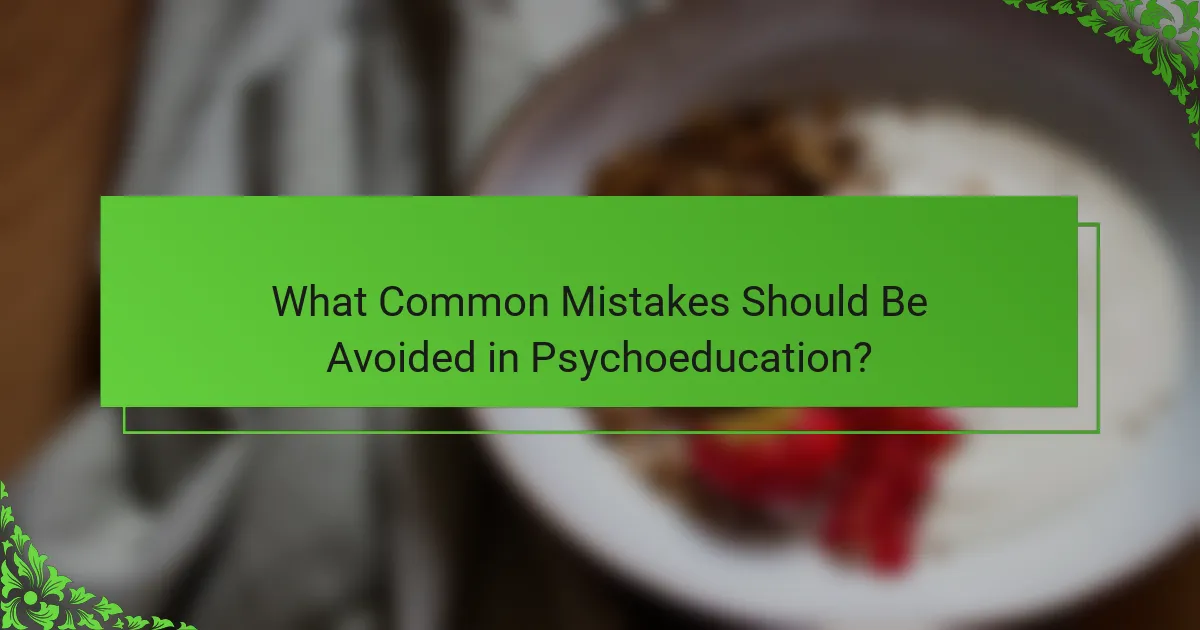
What Common Mistakes Should Be Avoided in Psychoeducation?
Common mistakes to avoid in psychoeducation include oversimplification, neglecting individual needs, and failing to provide actionable strategies. These errors can hinder effective communication and understanding. It’s crucial to tailor information to diverse audiences and ensure clarity without diluting essential concepts. Engaging participants through interactive methods enhances retention and application of knowledge.
How Can Practitioners Ensure Effective Communication?
Practitioners can ensure effective communication by employing clear language, active listening, and empathy. Establishing a supportive environment fosters trust and encourages open dialogue. Utilizing psychoeducation methods enhances understanding of mental health topics, making communication more impactful. Regular feedback and adapting communication styles to individual needs further improve interactions.
What Best Practices Should Be Followed for Successful Psychoeducation?
Successful psychoeducation relies on clear communication, active engagement, and tailored content. Implement these best practices for effective outcomes.
1. Assess the audience’s needs and knowledge level to tailor the information.
2. Use simple language and avoid jargon to enhance understanding.
3. Incorporate interactive methods, such as group discussions or role-playing, to boost engagement.
4. Provide practical examples that relate to real-life situations.
5. Include resources for further learning, such as books, websites, and support groups.
6. Evaluate the effectiveness of the psychoeducation sessions through feedback and assessments.
